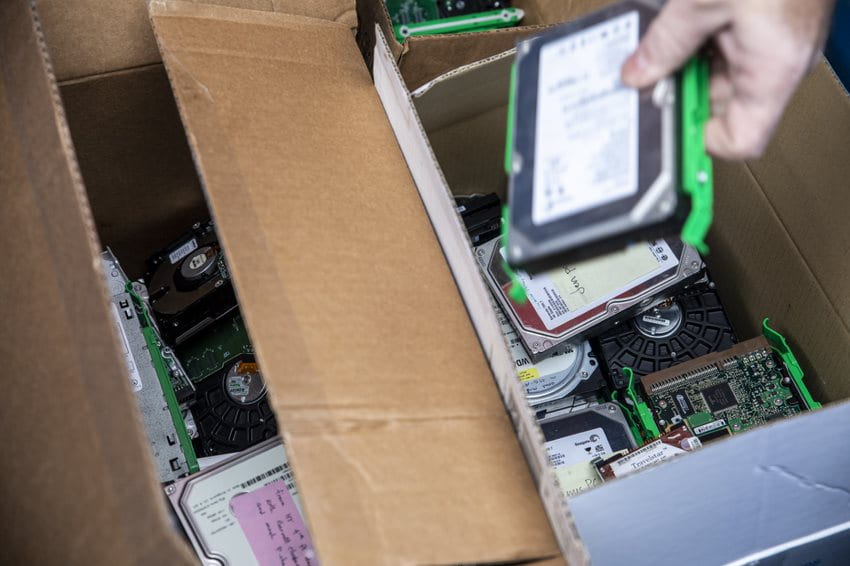Data gets recorded every day in many forms. Whether your data is in physical or electronic format, it is vital to your privacy and protection to dispose of it properly. What does that mean for different types of data?
For physical data, including old credit cards or documents containing sensitive information, using a high-quality shredder or a shredding service is recommended. It pays to be careful when choosing your own shredder, however; it is preferred to use a “diamond-cut” shredder so that the shredded pieces are very difficult to put back together. Keep in mind that owning your own shredder requires that you keep up with its maintenance. For instance, you will have to change out the waste that comes from shredding, which includes a high chance of shredded paper ending up on the floor (not an insurmountable obstacle, though). You will also have to make sure you don’t put too much material in at the same time or the shredder will jam. These are some common concerns when using your own shredder.
A shredding service is a good option if you simply want to bring your physical materials in for disposal and not deal with maintaining your own machine. Shredding services are available at your most Northeastern campuses from a local vendor. For example, at the Boston campus there are secure A1 Shred bins available at Snell Library. Further information about securely disposing of paper documents is available online.
And what about data in electronic format? Well, you might think that deleting a file off your device is enough to ensure it’s gone forever, but that’s not the case. While it is a best practice to delete all files and do a factory reset on a device before trading, selling, or disposing of it, there are still ways to pull data after a reset has been done. To maintain the highest security standards for deleting data, Northeastern has a knowledge base article about permanently deleting digital files to offer some guidance. Another way to handle this type of data disposal is by bringing your old device(s) to a disposal event, such as Data Destruction Day (held every October at Northeastern’s Boston campus).

It pays to take these extra steps to properly and securely dispose of personal and professional data. The more secure your data is, the safer the Northeastern community is. Thank you for taking the time to work toward safeguarding your information, documents, and devices. Stay safe!
